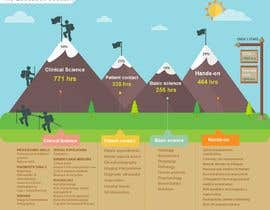Comprehending Nutrition'S Function In Neck And Back Pain Monitoring: Beneficial Foods And Foods To Prevent
Comprehending Nutrition'S Function In Neck And Back Pain Monitoring: Beneficial Foods And Foods To Prevent
Blog Article
Article Writer-Mcclure Nicolajsen
When it involves managing your neck and back pain, the food options you make can substantially influence exactly how you really feel each day. Envision having the ability to relieve your discomfort merely by readjusting what you consume. By recognizing the role of nourishment in back pain monitoring and understanding which foods to incorporate or stay away from, you can take positive steps towards a healthier and much more comfy way of living. The link between nutrition and back health is more extensive than you may understand-- allow's discover just how specific foods can either calm or worsen your pain in the back.
Relevance of Nourishment in Back Pain
Nourishment plays a vital function in managing pain in the back. Your diet can significantly impact inflammation levels and overall discomfort levels in your back. Eating a balanced diet plan abundant in nutrients like vitamins D and K, calcium, magnesium, and omega-3 fats can help reduce inflammation and strengthen bones, which are vital for back health and wellness.
Furthermore, keeping a healthy weight through proper nourishment can relieve anxiety on your spinal column, lowering the risk of back pain.
In addition, certain nutrients like antioxidants located in fruits and vegetables can help deal with oxidative tension and promote recovery in the body, including the back muscle mass and back.
On the other hand, taking in excessive amounts of processed foods, sugary beverages, and unhealthy fats can add to inflammation and weight gain, exacerbating pain in the back.
Foods to Eat for Back Health
To support a healthy and balanced back, including nutrient-rich foods right into your day-to-day meals is crucial. Consisting of https://emilianomhbwr.blog5star.com/31617023/improvements-in-chiropractic-modern-technology-forming-the-future-of-the-market in anti-oxidants like berries, spinach, and kale can help in reducing inflammation in your back, relieving discomfort and pain. mouse click the following article -3 fatty acids located in fatty fish such as salmon and mackerel have anti-inflammatory homes that can profit your back health and wellness.
Furthermore, eating nuts and seeds like almonds, walnuts, and chia seeds provides essential nutrients like magnesium and vitamin E, which support muscle function and minimize oxidative tension. Integrating lean proteins such as chicken, turkey, and tofu can aid in muscle mass repair service and maintenance, promoting a strong back.
Do not forget to include dairy products or strengthened plant-based alternatives for calcium to sustain bone wellness. Last but not least, hydrate with a lot of water to keep your back discs moistened and functioning optimally. By including these nutrient-dense foods in your diet regimen, you can nourish your back and support total spinal health.
Foods to Avoid for Pain In The Back
Opt for staying clear of processed foods high in added sugars and trans fats when looking for remedy for pain in the back. These kinds of foods can add to inflammation in the body, which might worsen back pain. Say no to see post like candy, pastries, and sweet beverages, as well as fast food things like hamburgers, french fries, and fried poultry that are usually packed with trans fats.
Furthermore, stay away from foods containing high levels of refined carbs, such as white bread, pasta, and pastries, as they can increase blood glucose degrees and potentially intensify inflammation in the body.
It's also a good idea to restrict your consumption of foods high in saturated fats, like red meat and full-fat dairy items, as they can add to swelling. Refined foods like deli meats, chips, and packaged treats are often high in hydrogenated fats and must be consumed in moderation.
Conclusion
Finally, taking notice of your diet plan and making wise food options can have a substantial impact on taking care of back pain. By including nutrient-rich foods like berries, fatty fish, nuts, and lean proteins, and staying clear of processed and sweet products, you can help in reducing swelling and support generally back health. Bear in mind, what you eat plays a vital duty in exactly how you feel, so ensure to prioritize your nourishment for a healthier back.
